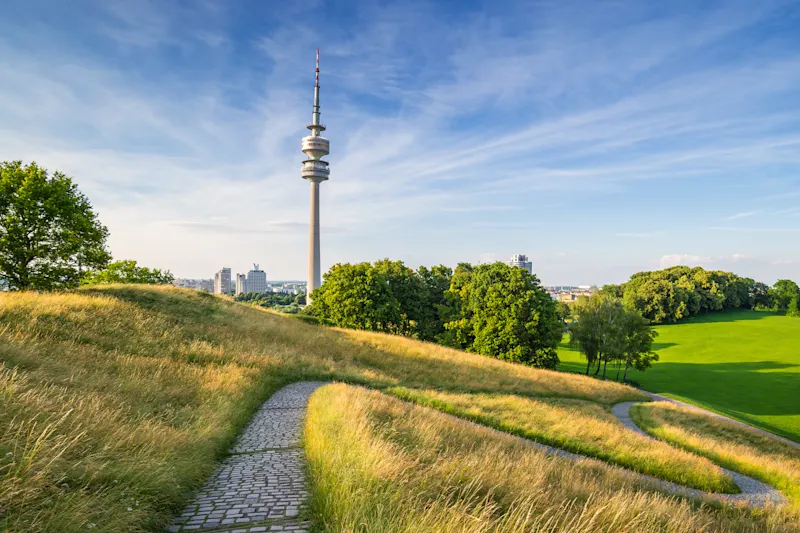
The 50 Best Cities for Sustainable Travel
Plan your Trip
Your tailor-made itinerary – No cost, no commitment
Where are the best cities for a sustainable getaway? From Melbourne to Medellín, cities around the world are becoming increasingly eco-conscious in their public policy and travelers are responding. Whether reaching their destination by train, or opting for cities outside of the typical tourist circuit, more travelers than ever are choosing to spend their vacations in an environmentally friendly way. Sustainability is changing the way people travel.
As a carbon neutral travel company, that offsets the carbon emissions of our travelers and our team, we’re passionate about sustainable travel. To help travelers identify the best cities for an eco-friendly getaway, we’ve analyzed hundreds of cities around the globe to highlight the top 50 most eco-friendly destinations. We looked at accessibility by train, public transportation, car ownership, green space, the ratio of tourists to locals, air quality, green energy, and recycling levels in order to produce a final shortlist. We’re excited to reveal the top 50 below!
Ranked: The 50 Best Cities for Sustainable Travel
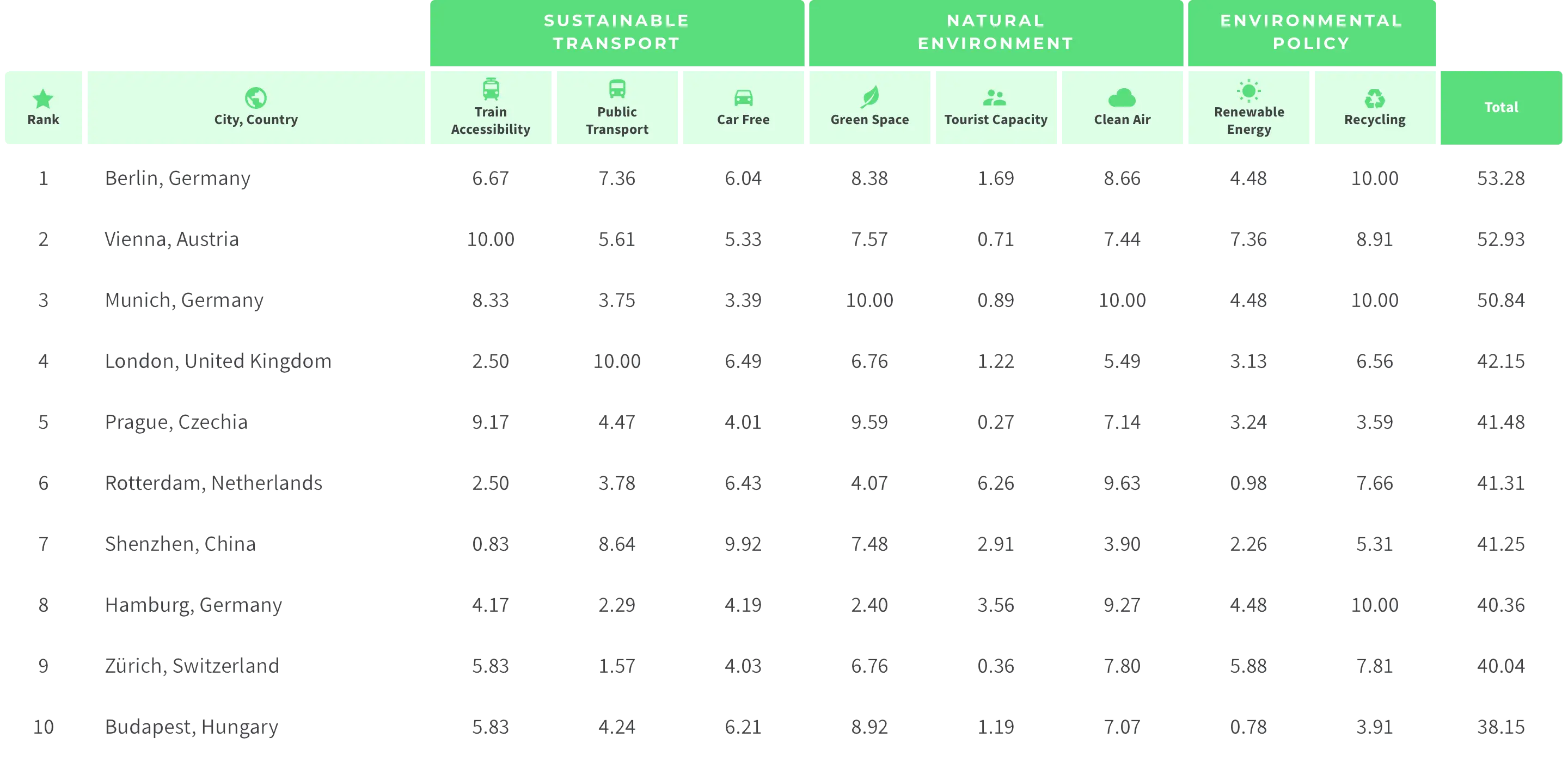
Berlin, Germany’s vibrant and cosmopolitan capital city, is the best city for an eco-friendly getaway. If you’d like to do a multi-stop trip, the German cities of Munich and Hamburg also make this year’s top 10. London is the highest-ranking English speaking city in the ranking, while Shenzhen, China’s green capital, is the top-rated city outside of Europe.
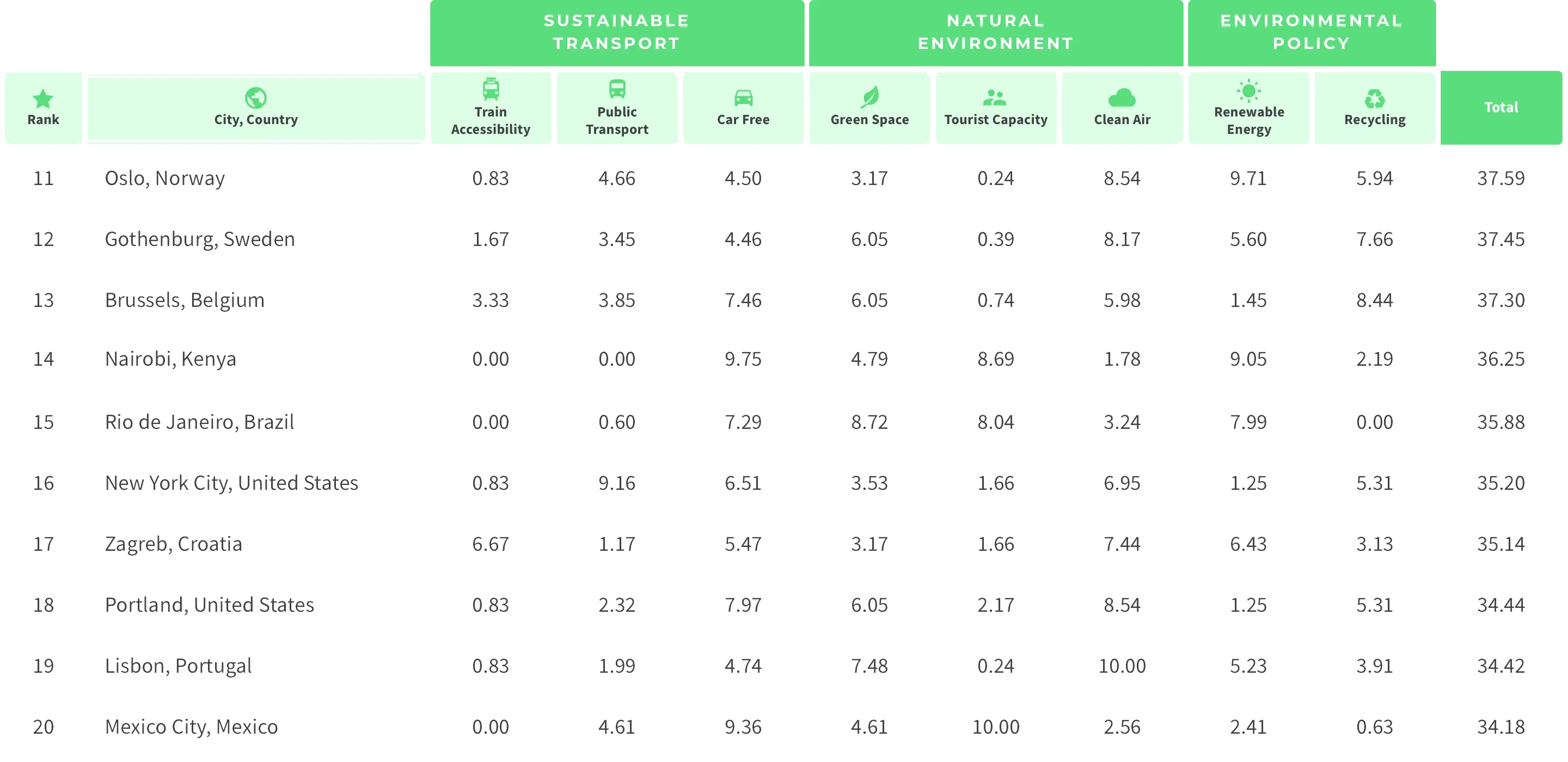
The Norwegian capital, Oslo, is the highest-ranked Scandinavian city in this year’s ranking. Nairobi is the highest-ranked African destination, and is an excellent place to start a safari trip around Kenya. The green city of Rio de Janeiro places 16th in this year’s ranking, above all other South American cities. Meanwhile, with its excellent public transport and low levels of car ownership, New York City places first in North America.
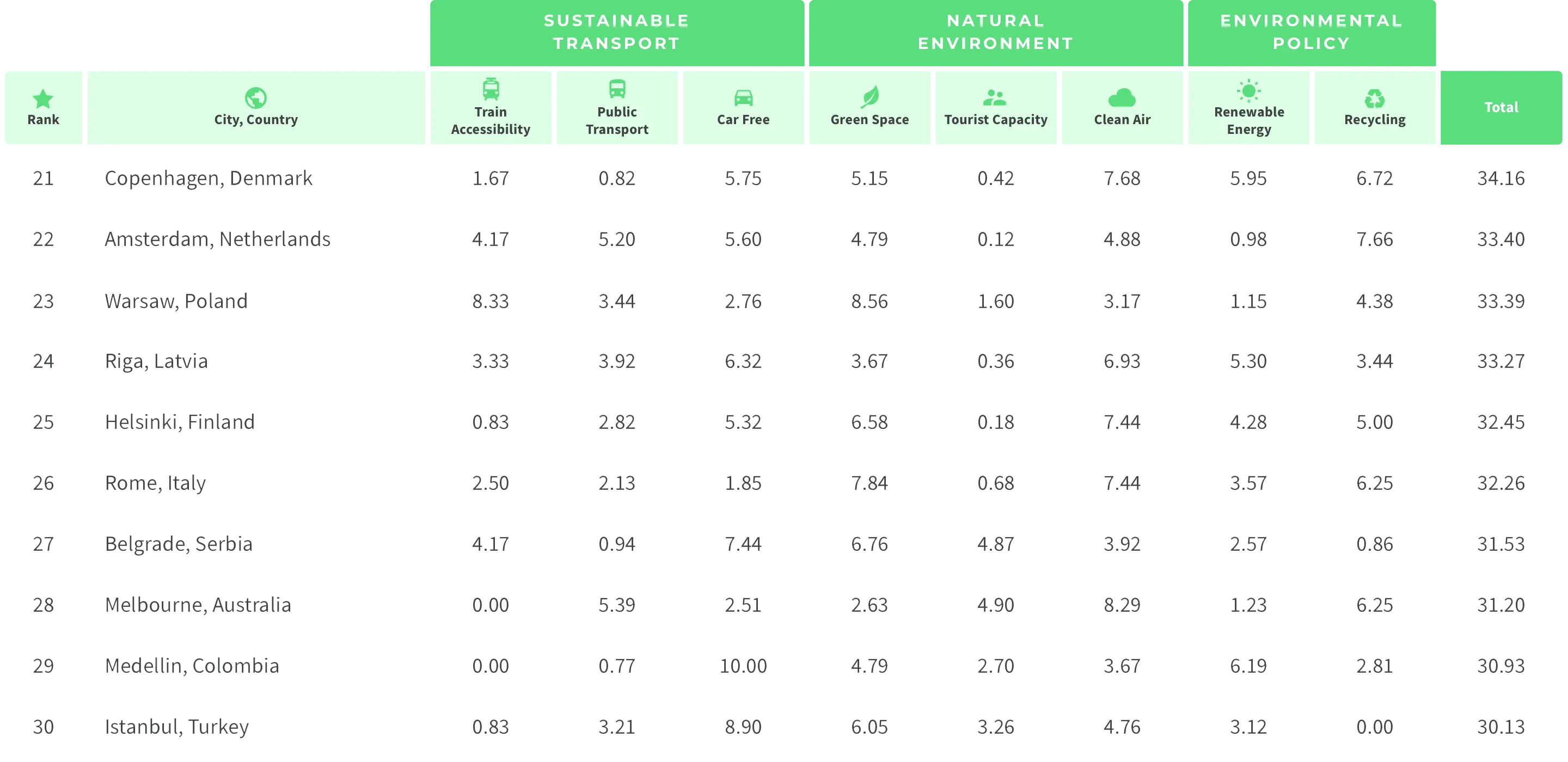
Melbourne, Australia’s popular and liveable second city, is the best city Down Under for a sustainable vacation. If you’re interested in doing a multi-stop tour of the Baltic states, Riga and Helsinki are both placed within this year’s top 25. Copenhagen, Amsterdam, and Warsaw are all also accessible by train in less than a day.
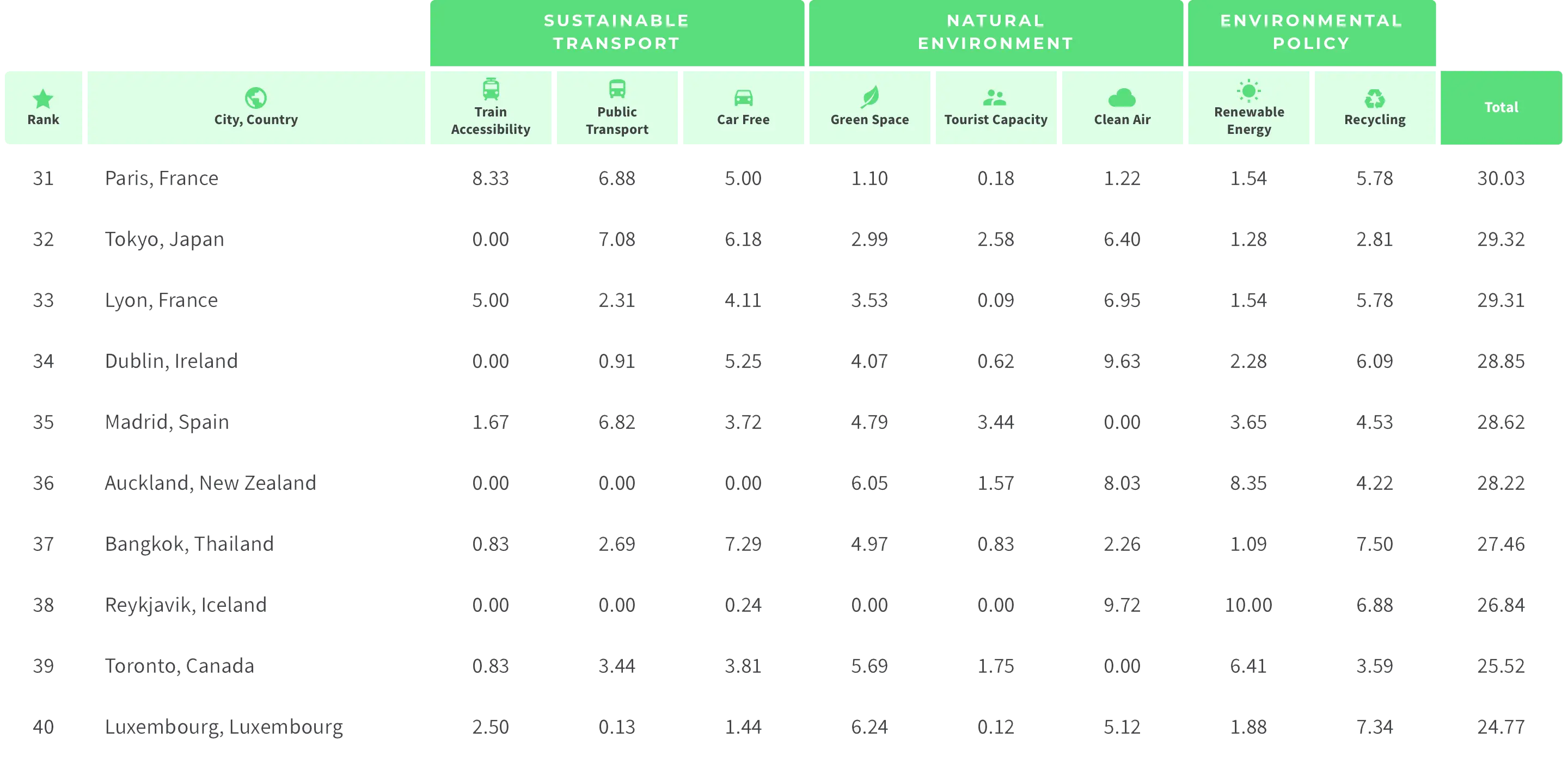
The elegant French cities of Paris and Lyon both make this year’s 35. Enjoy both of them with a multi-stop trip—the cities are just two hours apart by high-speed train. Madrid, Spain’s charming and authentic capital city, is also reachable from France by train. In Asia, the likes of Tokyo, Bangkok, Kuala Lumpur, and Denpasar all make the top 50, although you’ll need to fly between them.
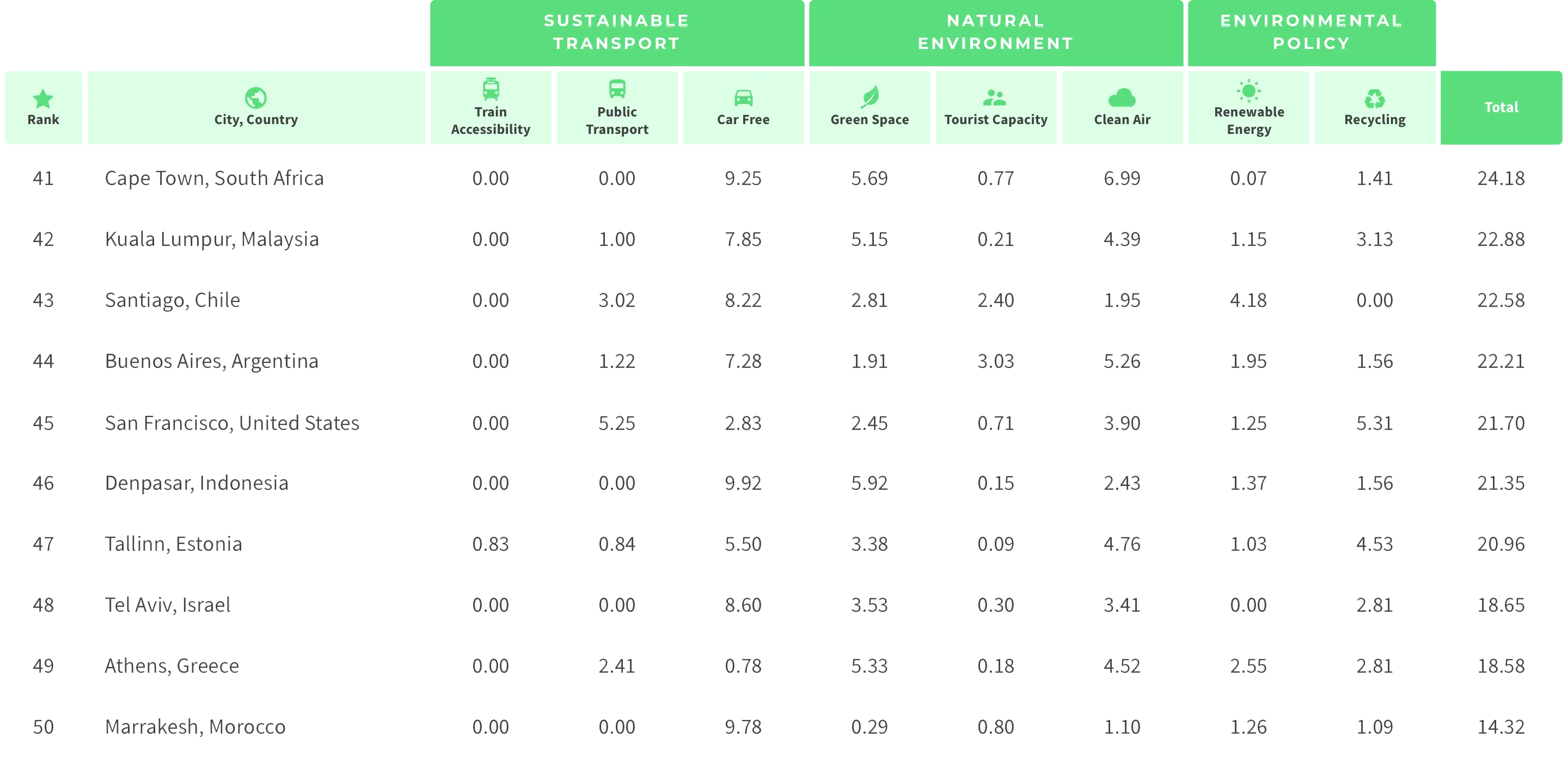
How We Produced This Guide
We used the following equation to scale the data from 1 to 10: Score (i) = 10*(x-minimum)/(maximum/minimum).
Train Accessibility: This score is based on the number of countries that are reachable by direct train. A higher score equates to a higher number of international connections. We used international train timetables to calculate this score.
Public Transport: This score is based on the length of the metro network and light rail network of each city. A higher score equates to a more extensive metro and light rail network. We used data provided by the public transport networks to calculate this score.
Car Free: This score is based on the number of cars per 1000 inhabitants. A higher score equates to a lower number of cars per 1000 inhabitants. We used a leading online statistics website to calculate this score.
Green Space: This score is based on the percentage of the city that is made up of green space. A higher score equates to a higher percentage of green space. We used a leading online analysis of urban green space based on computer vision and deep learning techniques on satellite images.
Tourist Capacity: This score is based on the ratio of local residents to the number of international overnight visitors. We used population and visitor data provided by the cities to calculate this ratio. A higher score equates to a higher ratio of locals to visitors.
Clean Air: This score is based on the World Air Quality Index. A higher score equates to better air quality.
Renewable Energy: This score is based on the percentage of total energy consumption that comes from renewable energy. A higher score equates to a higher percentage of renewable energy usage. Please note that this score is also calculated at a country level as the data is provided by the government, and therefore certain cities have the same score (e.g. Berlin and Munich).
Recycling: This score is based on the percentage of waste that is recycled. A higher score equates to a higher percentage of waste being recycled. Please note that this category is also calculated at a country level as the data is provided by the government, and therefore certain cities have the same score.
For those with interview requests and any additional queries, please contact: press@tourlane.com

